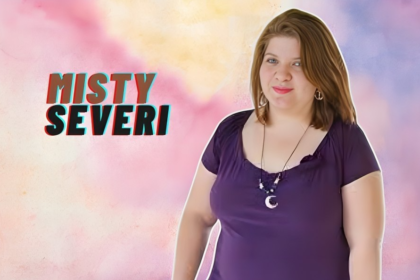Introduction to Meldadel Mugshot
Meldadel Mugshot is a name that has recently taken the internet by storm. This single image, seemingly just another standard mugshot, ignited a firestorm of debate and discussion across social media platforms. What was it about this photograph that captured public attention so fiercely? From its unexpected backstory to the myriad opinions swirling around it, Meldadel’s mugshot became more than just an arrest record; it turned into a symbol of deeper societal issues. As we delve into the factors fueling this controversy, we’ll explore how one person’s image can resonate on such a monumental scale.
The Controversy Surrounding Meldadel’s Mugshot
Meldadel’s mugshot quickly became a focal point of debate. The image stirred intense emotions among viewers, leading to discussions that often spiralled into heated arguments.
Some saw it as a mere photograph, while others viewed it as emblematic of deeper societal issues. Critics argued the photo perpetuated stereotypes and unfair narratives about those in legal trouble. Supporters defended it as simply an unfiltered portrayal of reality.
The controversy wasn’t just limited to opinions; it also ignited conversations about privacy rights versus public interest. Many questioned if such images should be shared widely or used for entertainment purposes.
As the dialogue continued online, various platforms buzzed with posts analyzing every aspect of the case behind the mugshot. This sparked additional scrutiny on how society perceives individuals through fleeting snapshots, raising questions that lingered long after the initial uproar faded away.
Impact of Social Media on the Controversy
Social media played a crucial role in amplifying the controversy surrounding Meldadel’s mugshot. Platforms like Twitter and Instagram’s instant sharing capabilities meant that opinions could spread quickly, often without context.
Users reacted almost immediately, posting memes, comments, and debates. This rapid engagement created an echo chamber where voices were either vehemently supportive or fiercely critical.
The image sparked heated discussions about justice, public perception, and societal values. Many felt compelled to voice their thoughts on what the mugshot represented.
Hashtags emerged overnight as people sought to categorize their responses. Some aimed for humour, while others focused on serious implications regarding legal systems.
This phenomenon highlighted how powerful social media can be in shaping narratives. Sometimes, it seems like just one photo can ignite widespread discourse in mere hours.
The Power of a Single Image
Images have an undeniable ability to evoke emotions and create narratives in mere seconds. A single photograph can capture a moment that resonates deeply with viewers.
Meldadel’s mugshot is a prime example of this phenomenon. It sparked debates, discussions, and even outrage across various platforms.
Visuals transcend language barriers. They communicate complex messages instantly, allowing for rapid sharing and engagement online. One glance at the image often stirs strong reactions—both positive and negative.
The impact of this single image illustrates how powerful visuals can shape public perception. It reminds us that context matters immensely in understanding what we see.
In today’s digital landscape, images like Meldadel’s become symbols of broader issues or societal reflections. Their influence extends beyond personal stories into collective consciousness, sparking movements and conversations worldwide.
Responses and Reactions to Meldadel’s Mugshot
Meldadel’s mugshot ignited a whirlwind of responses online. Some individuals expressed outrage, arguing that the image perpetuated stereotypes and stigmas associated with arrests.
Conversely, others found humour in the situation, sharing memes that played on Meldadel’s expression. This stark contrast in reactions highlighted the divide among social media users.
Influencers and public figures weighed in, too. Many supported Meldadel while calling attention to broader issues surrounding systemic injustices in law enforcement practices.
Debates flourished across platforms like Twitter and Instagram, turning a single image into a focal point for discussions about societal perceptions of crime and punishment.
As people dissected every angle of the controversy, it became clear that emotions ran high. Emotional responses ranged from empathy to outright condemnation, showcasing how deeply personal experiences shape views on such matters.
Lessons Learned from the Controversy
The Meldadel mugshot controversy reveals the profound impact of images in our digital age. A single photo can ignite debates and shape perceptions instantly.
It reminds us that context matters. Without background information, an image may tell a misleading story. Understanding this is crucial to avoiding misinformation.
Also, it highlights the responsibility of content creators and consumers alike. We must think critically before sharing or reacting to something online.
Empathy plays a vital role, too. Behind every image lies a person with feelings and experiences—something we often overlook in haste.
This incident underscores the importance of dialogue over judgment. Engaging in conversations allows for diverse perspectives and deeper understanding rather than jumping to conclusions based solely on visuals.
Conclusion: The Importance of Responsible Use of Social Media
The controversy surrounding the Meldadel mugshot serves as a powerful reminder of how a single image can ignite widespread discussion and debate. It underscores the importance of being mindful when sharing content on social media platforms.
Every post can carry significant implications, impacting reputations and triggering strong emotions. As users navigate through an increasingly digital world, it’s crucial to consider the consequences before hitting that “share” button.
Responsible use of social media isn’t just about following rules; it’s about understanding its potential to shape narratives, influence perceptions, and impact lives. Awareness and thoughtfulness in our online interactions are essential for fostering a more respectful and constructive digital community.






